Each year, Sirens chair Amy Tenbrink posts monthly reviews of new-to-her books from the annual Sirens reading list. You can find all of her Sirens Book Club reviews at the Sirens Goodreads Group. We invite you to read along and discuss!
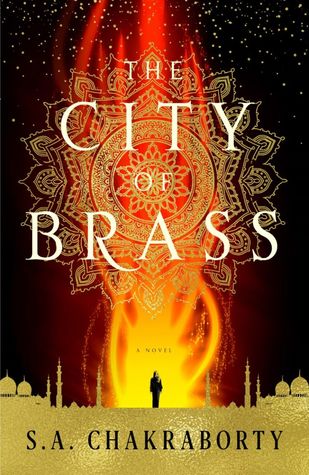
People often ask me about my favorite type of books.
My reading volume is something of legend, not only at Sirens, but in professional circles where my bio—prompted by a public relations person who wanted to add some humanity to my list of accomplishments—has for a number of years included the number of books I read annually. Books are an easy conversation starter, right? What do you read? What’s the best book you’ve ever read? Have you read Lincoln in the Bardo or The Underground Railroad or inevitably some other borderline fantasy work by a dude? What should I read? What is your favorite type of book?
I have different answers for different people, of course. Some people struggle with the notion of fantasy generally, and then we have to talk about Game of Thrones and Westworld and how both are speculative, but only one is fantasy (and ahem, how only one is good). Some people are deep into fantasy, but read mostly white male authors, so we have to talk about Nnedi and Nora and Yoon and Guadalupe. Occasionally, people are well-versed in what I actually read, and I can discuss my deep and abiding love for fantasy-literary crossovers and high-fantasy adventure.
But if you ask me, unfettered, to tell you my favorite type of book, the answer has nothing to do with category or genre or women authors. If you ask me, unfettered, to tell you my favorite type of book, here it is: the sort of book where a woman—a powerful woman, a smart woman, a skilled woman—makes decisions.
They don’t have to be good decisions or smart decisions or immediate decisions, mind you, but she has to make decisions.
For a couple reasons, right? Partly because main characters who make decisions are more likely to be active, interesting, driven. They’re more likely to be protagonists or even antagonists, rather than simply narrators. Main characters who make decisions—good decisions, bad decisions, smart, foolish—tend to move the plot, redefine relationships, or even further the reader’s understanding of the story. Those characters, those characters whose decisions make things happen? Those characters are interesting. I want to ride with those characters.
But perhaps even more importantly, women spend so much of their lives without agency, without the power to make things happen, that it’s at best fundamentally uninteresting, and at worst, devastating, to see female characters without that agency. I want female characters who have agency, who can make decisions, whose decisions are powerful, whose decisions mean something.
Now some of you, probably many of you, don’t have this same quirk. Some of you, probably many of you, might even like heroines who are dragged, often kicking and screaming, into adventure and intrigue. Therefore, some of you, probably many of you, aren’t going to share my impatience with The City of Brass.
S. A. Chakraborty’s The City of Brass opens in eighteenth-century Cairo, with Nahri—who despite having readily apparent magic, refuses to believe in it. (What?) She gets by on the streets by reading palms, stealing, and performing some rather miraculous healings. As part of a con, Nahri accidentally summons Dara, a djinn, and then all hell breaks loose. The dead rise from the mausoleum, Dara forces Nahri to flee from Cairo on a flying carpet, and a giant bird of unknowable power appears in the desert. How about that magic now, Nahri?
Nahri goes kicking and screaming. Despite her life on the streets in Cairo, she wants nothing to do with Dara, his magic carpet, or his impossible stories of ancient beings of fire and water. Or, for that matter, their destination: Daevabad, a magical city with mysterious ties to Nahri’s magical heritage.
Charkraborty has said that The City of Brass began as, essentially, history fanfiction. Scant references to djinn and Suleiman and myths that she researched and then wove into an entire secondary fantasy world stretching from Morocco to Ethiopia to China. In many, many ways, The City of Brass is a tour de force: breathtaking world-building, near-seamlessly dropped into actual history and geography; an extensive fantastic history, about which the reader salivates to know more; myriad distinct cultures premised on war or culture or art. This world is as impressive—and as interesting—as Leigh Bardugo’s Grishaverse or Yoon Ha Lee’s Machineries of Empire universe; the art and culture as well-designed as Cassandra Khaw’s Food of the Gods or Erin Morgenstern’s The Night Circus; the secondary characters as developed and fascinating as Fonda Lee’s or Alex Marshall’s.
But where Chakraborty stumbles a bit is her point-of-view characters. Nahri spends almost all of the book kicking and screaming—about everything. Even when she and Dara have reached Daevabad, she continues to kick and scream about big things and little things, not only impingements on her freedom, but also, early and often, about how much practice it takes to learn to use her magical heritage. And because she’s so often in the dark, and kicking and screaming to stay that way, she’s not much of a decision-maker; indeed, she spends much of the book manipulated by a bunch of men. If she’d just point all that energy in a useful direction, maybe she’d claim her agency long before the end of the book. (In her defense, I suppose, her intended character arc stretches across multiple books; the fact that she stops acting like a brat at the end of The City of Brass bodes very well indeed for the next book.)
The other point-of-view character is Alizayd, a younger prince trained in war to serve in his brother’s future government. Alizayd disagrees vehemently, impoliticly, and often rudely with his father’s rule, finding numerous inconsistencies between their holy texts or tenets of law and his father’s practicalities. Alizayd tends to come off condescending and prudish, especially in contrast to his older brother—and while the prudishness didn’t bother me, his hauteur regarding his father’s regime, especially in light of his ignorance about how to actually rule, was grating. Lord save me from young men who think they know everything.
In hindsight, I think you have to consider this book as a multi-book arc: not just for plot, which is so common in fantasy, but in terms of character arcs as well. I firmly believe that both Nahri and Alizayd will start making decisions further down the line, and when they do, they’ll almost by definition become far, far more interesting. In the meantime, enjoy the dazzling show that is Chakraborty’s magical world.
Amy Tenbrink spends her days handling strategic and intellectual property transactions as an executive vice president for a major media company. Her nights and weekends over the last twenty-five years have involved managing a wide variety of events, including theatrical productions, marching band shows, sporting events, and interdisciplinary conferences. Most recently, she has organized three Harry Potter conferences (The Witching Hour, in Salem, Massachusetts; Phoenix Rising, in the French Quarter of New Orleans; and Terminus, in downtown Chicago) and eight years of Sirens. Her experience includes all aspects of event planning, from logistics and marketing to legal consulting and budget management, and she holds degrees with honors from both the University of Southern California’s Thornton School of Music and the Georgetown University Law Center. She likes nothing so much as monster girls, Weasleys, and a well-planned revolution.





























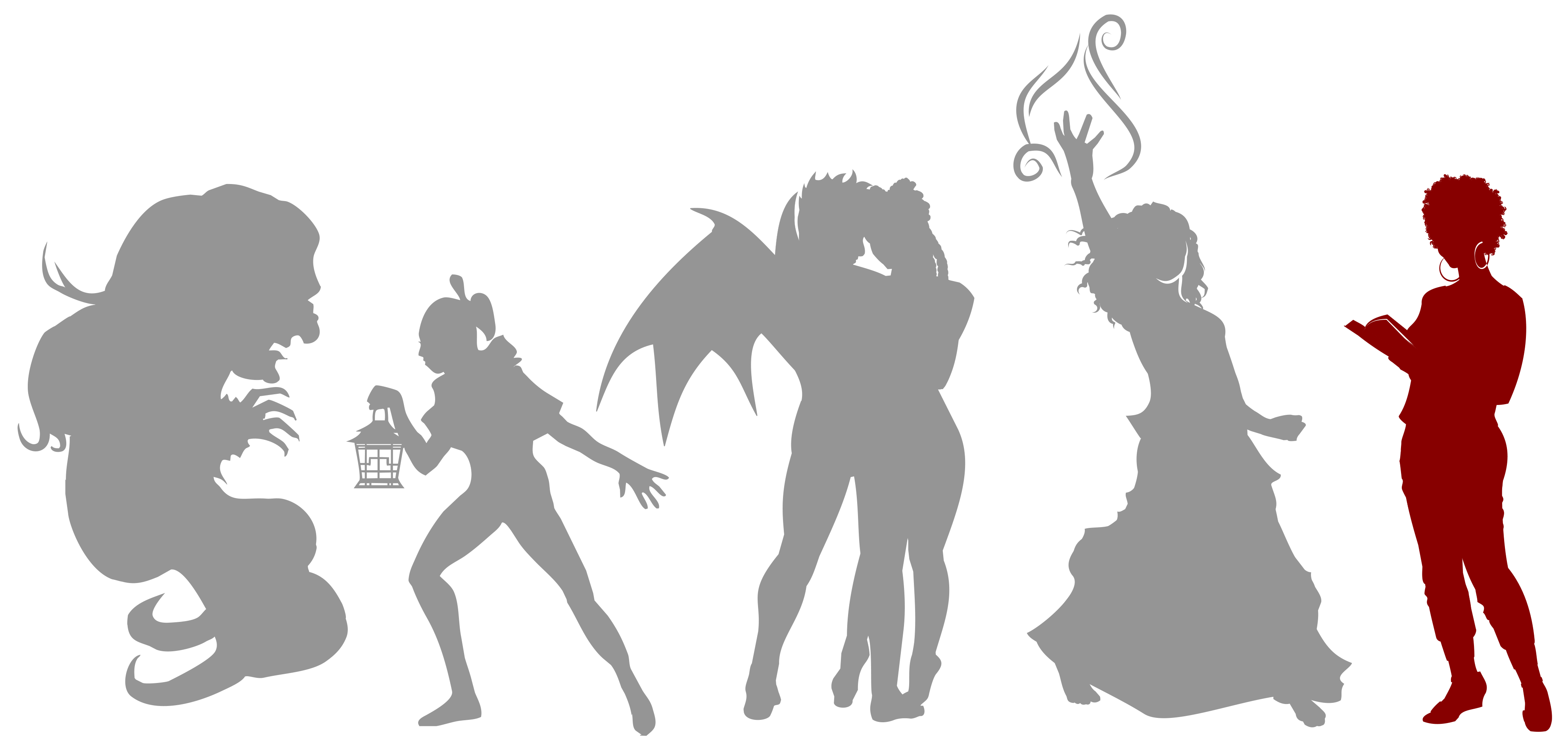
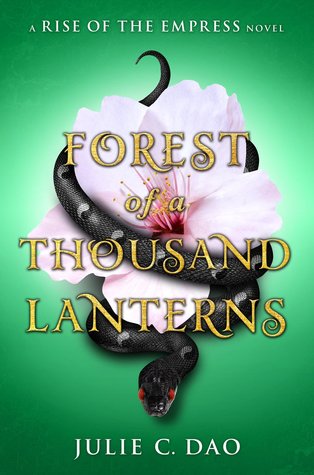
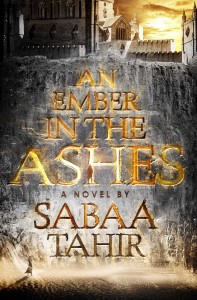
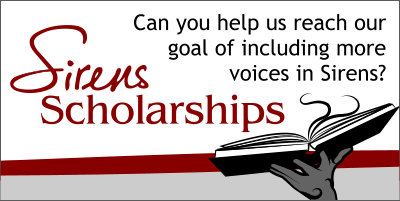



Connect with the Sirens community
Sign up for the Sirens newsletter